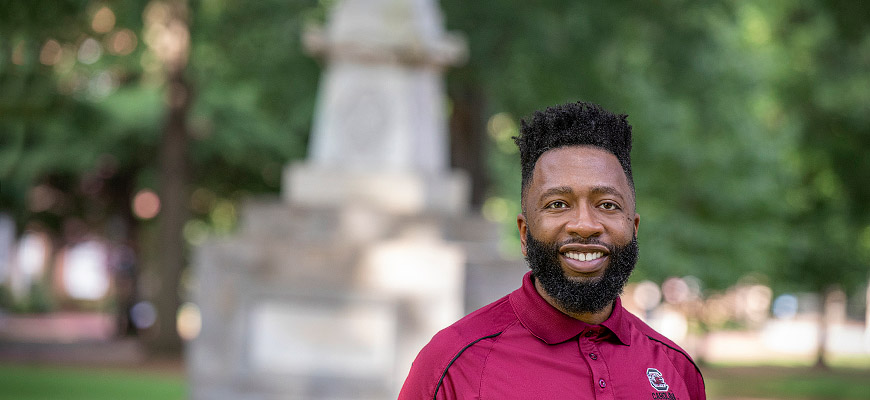Message from vice president of Office of Diversity, Equity and Inclusion
“I can’t breathe.”
Those were the words that George Perry Floyd, Jr., uttered as his life was being tragically stripped from this earth one year ago today on a Minneapolis, Minnesota street.
As we reflect on this somber anniversary, the world, our country, and in many ways our campus remains vastly different after May 25, 2020. For many, Mr. Floyd’s murder was a brutal reminder of the daily impact of race and systemic racism in the lives of Black people and communities of color. His murder sparked a worldwide movement and passionate calls for racial justice.
So what have we learned? That is an excruciatingly difficult question to answer. The unfortunate reality is that there have already been more names, more hashtags and more tragedies, because the systemic root causes that led to Mr. Floyd’s murder are still ever present one year later. Racism still exists and refusing to confront that fact will not make it magically disappear. Eradication of the societal ill of racism will only occur through deep collective reflection and intentional action to dismantle systemic inequity.
Last May we were confronted by the vast chasm between the promises of equal protection, equality, and fairness that our society is built upon and the reality that one’s skin color is largely determinative on whether or not an individual will receive access to those founding principles.
This societal reckoning with race and racism also exposed deep fractures within higher education. While there has been some progress, higher education has largely failed to address the structural inequities that run afoul of the lofty values that our institutions promote. Last summer these contradictions were laid bare once again even for us at the University of South Carolina. In response to Mr. Floyd’s murder and the larger worldwide social justice movement, a coalition of UofSC student leaders came forward to present 2020 Revision. In the document, they shared ideas for creating a more inclusive and equitable university.
The 2020 Revision Action Plan and UofSC’s Strategic Plan Priority Four are positive steps towards a more equitable and inclusive university, but it will require much more intentionality and accountability to bring the university in full alignment with the principles identified in our Carolinian Creed.
As a campus, it will require a full reckoning with our institutional history and how that history impacts our present and future, a continued examination and study of the university’s ties to the institution of slavery, and a full analysis of the names that adorn our campus buildings and whether or not those names truly reflect our institutional values. This is the work being performed by the Presidential Commission on University History.
At UofSC we don’t allow ourselves to fail on the things that matter to us. Today as we celebrate Mr. Floyd’s life and reflect on the circumstances of his murder, we must fully commit to racial equity and true inclusion not just as unattainable goals, but as unwavering principles. The creation and maintenance of a campus where all community members’ full identities are affirmed and where persons of color see themselves reflected at all levels, is inextricable to our success and future.
